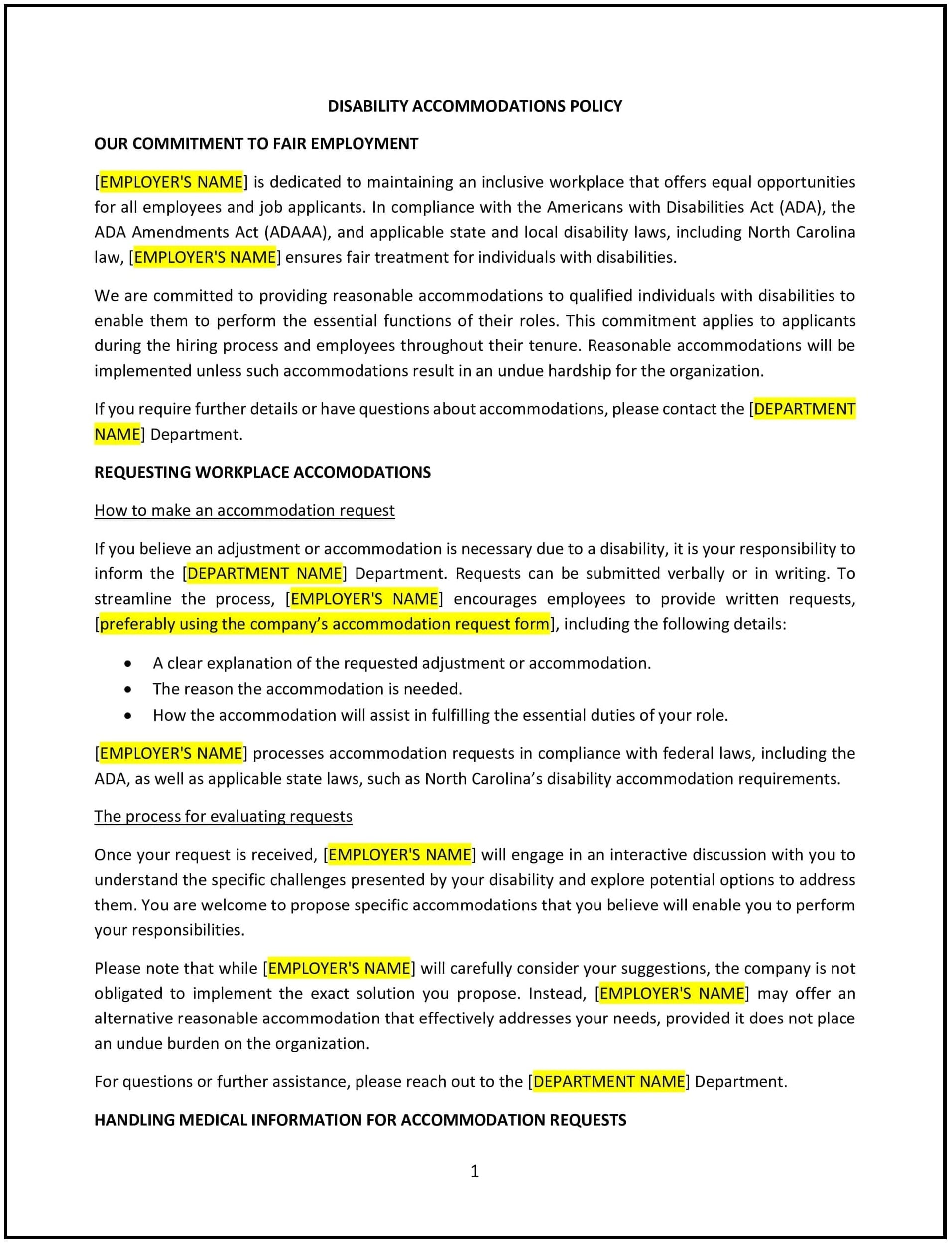Disability accommodations policy (North Carolina): Free template
Got contracts to review? While you're here for policies, let Cobrief make contract review effortless—start your free review now.

Customize this template for free
Disability accommodations policy (North Carolina)
A disability accommodations policy helps North Carolina businesses ensure they provide reasonable accommodations to employees with disabilities, allowing them to perform their jobs effectively. This policy outlines the process for requesting accommodations, defines what constitutes reasonable accommodations, and specifies the company’s responsibilities in meeting the needs of employees with disabilities.
By adopting this policy, businesses can foster an inclusive and supportive work environment while complying with the Americans with Disabilities Act (ADA) and North Carolina’s disability-related laws.
How to use this disability accommodations policy (North Carolina)
- Define reasonable accommodations: Clearly define what constitutes a reasonable accommodation, including adjustments to the work environment, changes in work schedules, or the provision of assistive technologies.
- Set the request process: Specify how employees should request accommodations, including any forms or documentation they must provide, and the timelines for submitting requests.
- Address the interactive process: Outline the interactive process for determining accommodations, where both the employee and employer engage in a dialogue to identify appropriate adjustments.
- Address confidentiality: Ensure that any medical or disability-related information is kept confidential and only shared with individuals who need to know in order to provide accommodations.
- Reflect North Carolina-specific considerations: Ensure that the policy aligns with North Carolina’s disability laws, including any state-specific regulations that expand upon the ADA’s requirements.
Benefits of using this disability accommodations policy (North Carolina)
This policy provides several benefits for North Carolina businesses:
- Improves legal compliance: A disability accommodations policy helps businesses comply with the ADA and North Carolina’s disability laws, reducing the risk of legal action or discrimination claims.
- Promotes inclusion: By providing reasonable accommodations, businesses create an inclusive work environment where employees with disabilities can succeed and feel valued.
- Improves employee retention: Providing accommodations helps retain talented employees who may otherwise struggle without support, enhancing employee loyalty and satisfaction.
- Enhances company reputation: A commitment to accessibility and inclusivity strengthens the company’s reputation as a fair and responsible employer.
- Increases productivity: When employees are provided with the necessary accommodations, they can perform at their best, which can lead to higher productivity and overall business success.
Tips for using this disability accommodations policy (North Carolina)
- Communicate the policy clearly: Ensure that all employees are aware of the disability accommodations policy and how to request accommodations.
- Train managers: Train managers and supervisors on how to respond to accommodation requests, how to engage in the interactive process, and how to handle confidential information.
- Monitor compliance: Regularly check that accommodations are being provided as requested and ensure the process is efficient and fair for all employees.
- Review the policy regularly: The policy should be reviewed annually to ensure it complies with North Carolina’s disability laws and reflects any changes in business operations or employee needs.